After enjoying borscht with Natasha and Irina on Friday night (see last post), I was invited to look around the school with some of the members of staff.
There has been a school on this site for 121 years, and this building dates from the 1960s. On 16 September 2023, it was half destroyed by a rocket attack and subsequent fire. The staff are now teaching remotely.
All of them are dedicated and experienced, but Oleksandr Zhuk, an IT teacher, stands out, having won the prestigious Global Teacher prize in 2019. He remains a modest young man. Deputy Director for Educational and Training Irina Konohrai is a sharp and determined woman, and she and smiley Special Needs teacher Irina Rylushko have both received local teaching prizes. Director Oleksandr Nyshenko is a confident leader. Taras Shevchenko (also pictured, in white…) is the Ukrainian national poet and an honorary member of any educational team as he is revered as a symbol of national resistance.
Director Nyshenko led a tour of the building, which before the war looked like this:
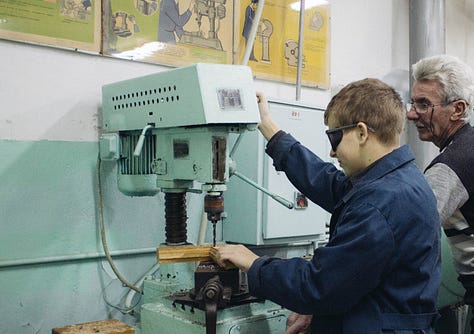
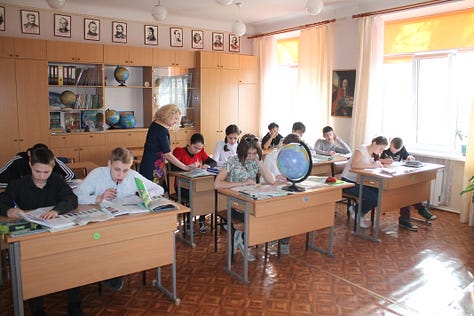
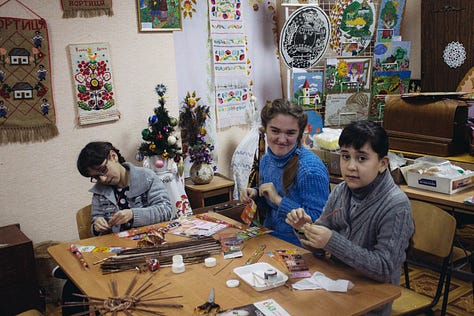
Now reconstruction is partway through:
ON: Well, as you can see, something happened! There was incoming, and two people were killed. Fortunately it was a Saturday and only two adults were killed, but half the roof was destroyed, some of the corridors, some of the classrooms. Since then, there’s been rain and snow, very low winter temperatures.
But reconstruction is underway?
We have part of a new roof. The doors and windows have been changed, and there’s new plumbing and electricity. We’re onto the last stage of repairs, but there’s not much money in Zaporizhzhia oblast [i.e. available from the local authorities] right now, so we don’t know how the work will be finished. Everyone’s trying, there’s a strong will to do it, but nobody knows how this will end. We’ve had Covid, we’ve had war, then incoming and a fire!
Are international organisations helping?
I’ve applied to all the international organisations, but none of them have replied. I applied personally, I applied through representatives, we’ve been to Kyiv twice. There’s one key reason: we’re near to the front, so nobody wants to allocate money here.
A conversation followed about the challenges of getting funding. This is something I’ve heard many times from Ukrainians doing amazing work on a shoesttring: the large NGOs which soak up resources and donations are the readiest to help where it’s least needed. Quite often I see low-value heavily branded items such as the plastic sheeting I saw in places around the school, but usually nothing more.
As we walked around, the staff showed me damaged areas along with photographs of how they used to be. Here’s part of the ground floor:
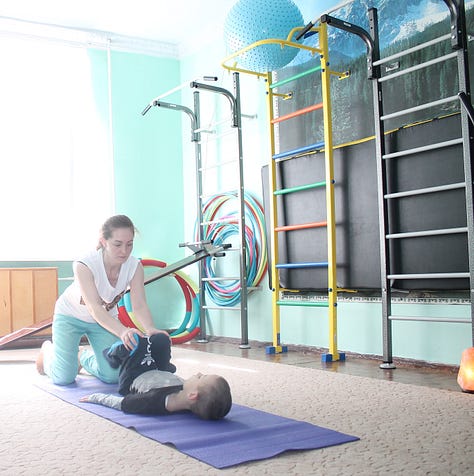
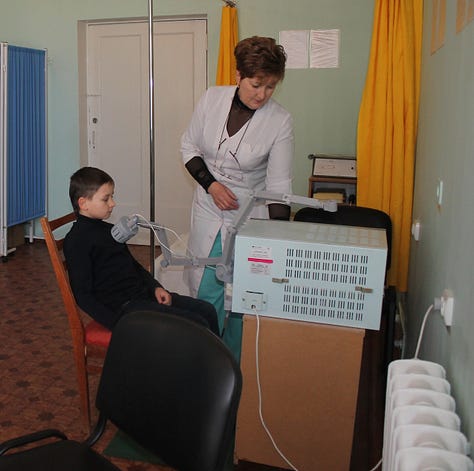
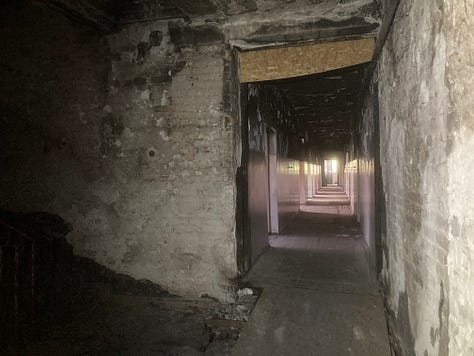
ON: This was the medical point for children who were sick or needed any medical services. When there was no roof the water penetrated the ground floor and well… now it’s in this state.
IK: We offered education and rehabilitation here – massages, physiotherapy. Oxygen cocktails.
Upstairs, some locations are in a slightly better condition:
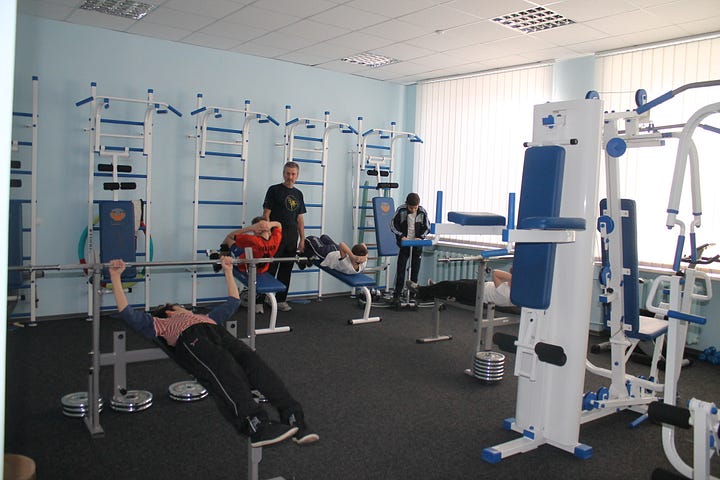
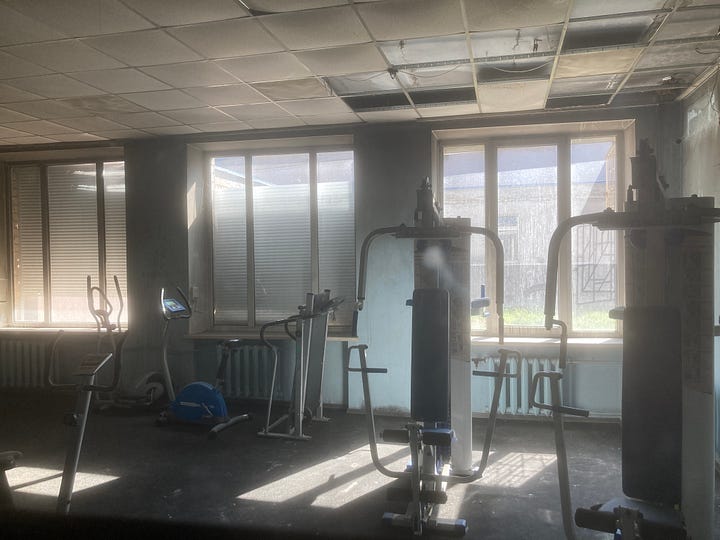
IK: In a lot of places, it’s all here and just needs a roof. The corridor is repaired. The furniture, the toys, the books, it all survived. The roof needs to be fixed, and we’ll wash the corridor and classroom and that will be everything. We saved everything we could from the water.
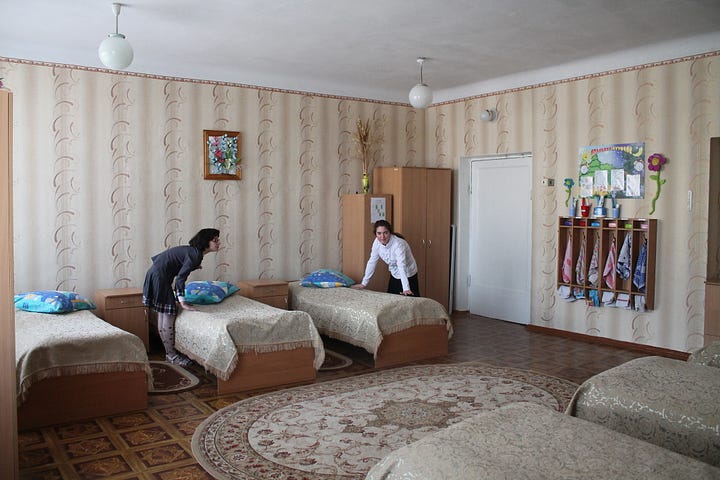
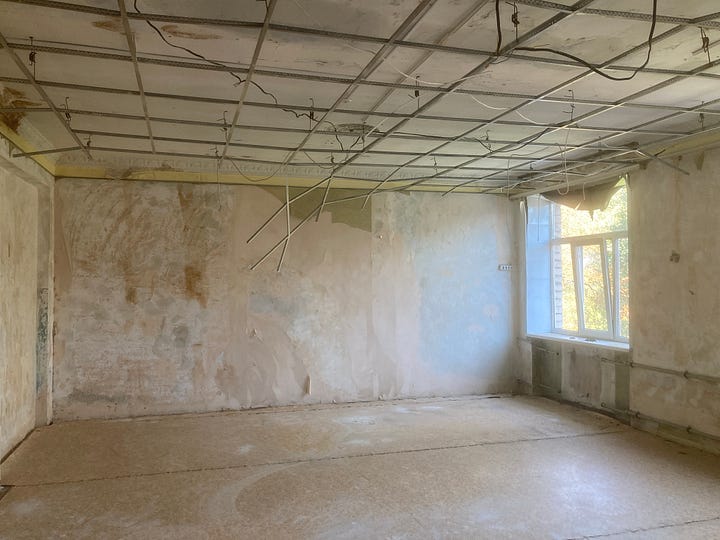
IK: We have ninety teachers, and seventy-five of them have special qualifications for working with special needs children. We have 281 children at the moment, in the school and the kindergarten. We don’t just have children from this town, but the whole oblast. They lived here in dormitories and went home at weekend and for holidays.
The sooner we bring them to work here in person with teachers, the better the result.
After a tour of the damaged area the teachers took me to the largely intact half of the building.
ON: The older children helped us move out the furniture and equipment to store here. There was no gas or water here, it was damp, but it’s dry now.
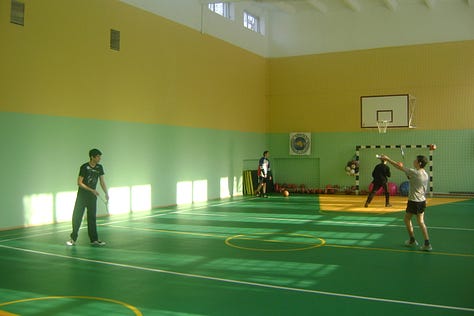
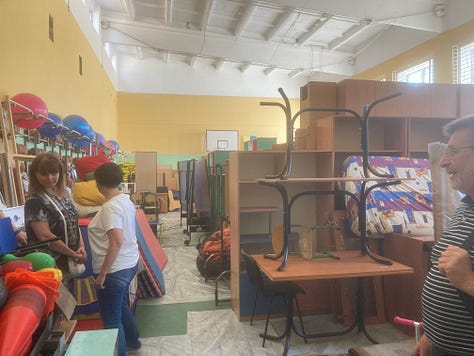
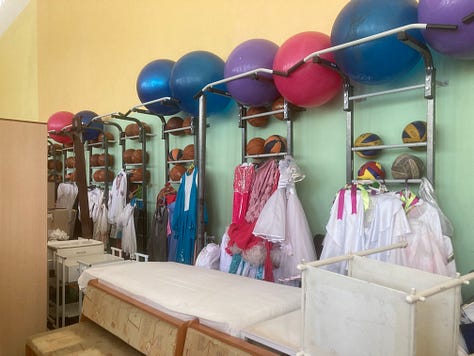
OZ: We have heating here. Everything was broken but we installed new heating. So half the building is warm in winter. There’s radiators.
IK: This is the accounts department, former classrooms. Their rooms burned down and now they work here.
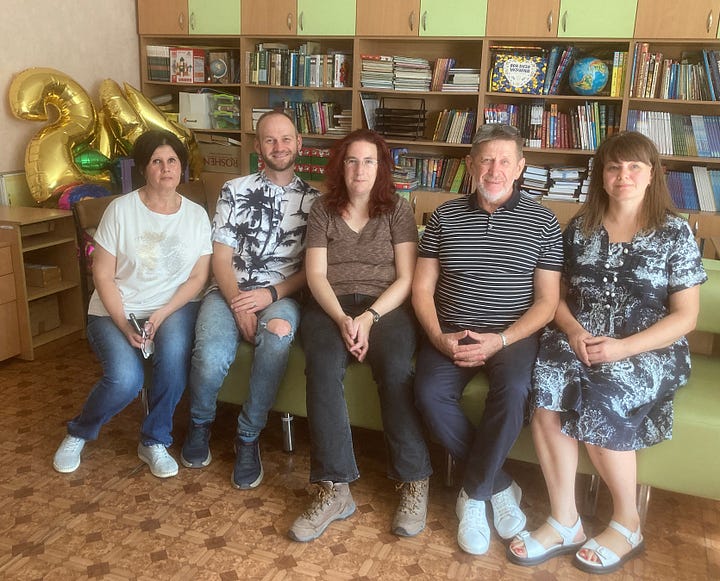
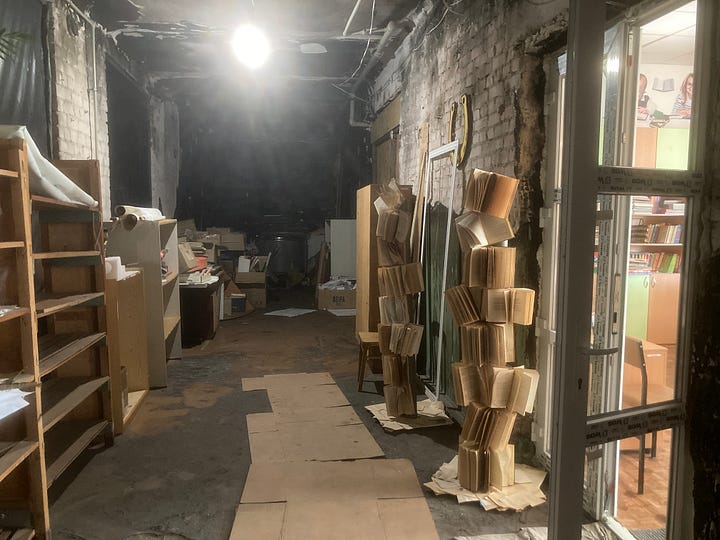
IR: This [one of the current temporary accounts offices] was my classroom. On 24.02 we started class. I wrote down the date, then we were told the children had to go home and they started to draw hearts. They drew them when they knew they were going home.
The staff of Zherelo are all very calm and pragmatic. They’ve had a year to get used to the situation, and work has been gradually proceeding in the right direction, even if it’s currently on hold due to lack of funds, but one can only imagine the condition everyone and everything must have been on 16 September last year; two colleagues dead and everything up in flames.
After the tour a feast was laid on to honour my presence! Courtesy of Vera, one of the administration staff.

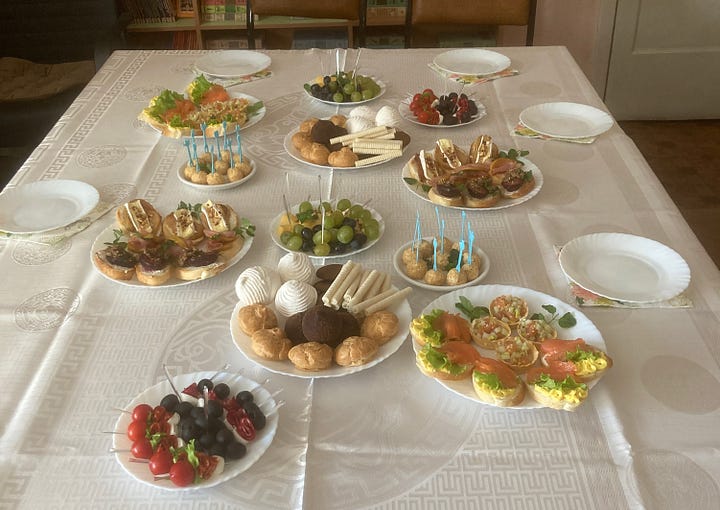
As we ate, everyone chatted.
ON: The school is currently working well because teachers take responsibility for the life and health of each child, which engages and motivates everyone.
IK: In the first days of the war, they brought us children from Mariupol. We took them in on the first evening. We didn’t understand what was going on yet. That morning we’d found out the war was going on, and everyone still felt this was impossible. We didn’t believe it.
These children had their names and dates of birth written on their hands and backs. At first, we didn’t understand. We hadn’t encountered anything like this. And only as things developed did we understand that this was so that, if something happened, their bodies could be identified. When we realised this, it was just terrible. Olexandr Vladimirovich [Nyshenko] gave us permission and in the first days we cooked pies in our dining room for IDPs every day.
Talk, of course, always comes back to the formerly resident students at the school. It’s been two and a half years now, so the staff are reconciled to the situation, but the frustration was still palpable when I asked again, what the children are doing at present.
ON: It all depends on the family. If the mother and father want to work with the child, they help the child develop at home. If they can’t, then nothing happens, and all the work the teachers have done with the child, the aims of the school… it just comes to nothing.
IR: There are good mothers. There’s a boy called Nikita who is at home now. He makes diamond mosaics and they give them away. He makes presents with his own hands and they give them to grandmothers, sisters, he gave one to me.
IK: But it hurts our hearts. The children still need us, need the school. It’s all because of the war. Because of the war there’s… nothing.
As we were leaving the room, one of the administration staff said to me, ‘This is how it all was,’ indicating the tidy room and then the burnt-out hallway. ‘And will be,’ I said. She smiled. ‘And will be, God willing.’
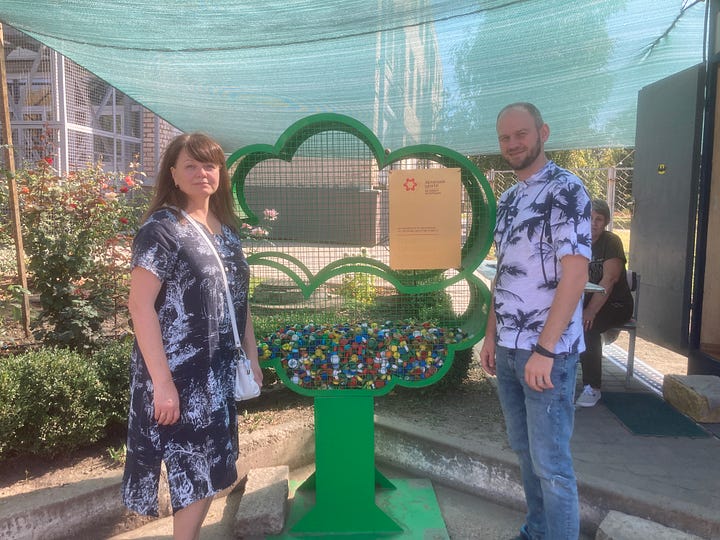
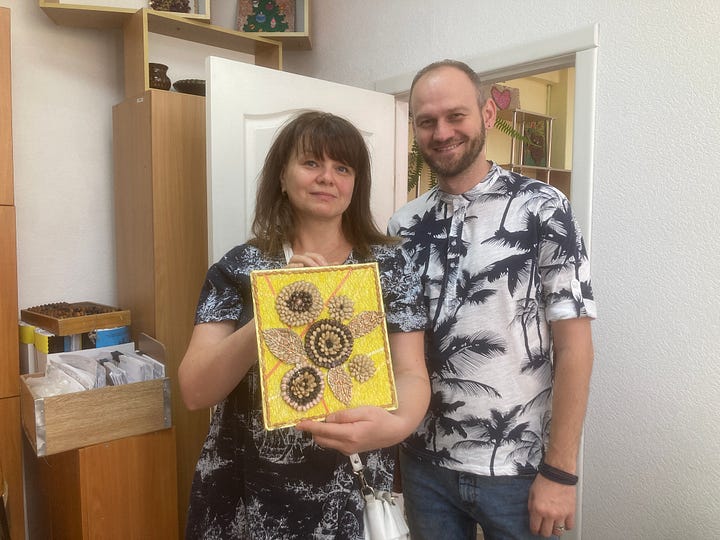
The argument that it’s not worth rebuilding near the front is one I’ve heard before from Westerners. Superficially this sounds harsh but sensible; but it’s part of a larger pattern. It ties in with my post about glide bombs reaching Zaporizhzhia for the first time, to minimal international comment, this week.
Is the idea is that if the West doesn’t defend and repair places like Zaporizhzhia - which is extremely unlikely to be occupied if Ukraine is kept supplied with weapons as it’s ten times the size of Bakhmut, the one significant city which Russia occupied with immense effort last year - the front will gradually move north and east, so that the rest of Ukraine comes within reach of glide bombs and is eventually destroyed, so organisations will have an excuse to stop wasting executive bonus money there too?
No, of course that’s not the conscious goal; how silly of me to suggest it. So why don’t we collectively stop behaving in a way that will bring it about?
If anyone knows of organisations that might be interested in funding this kind of rebuilding, please contact me by direct message.




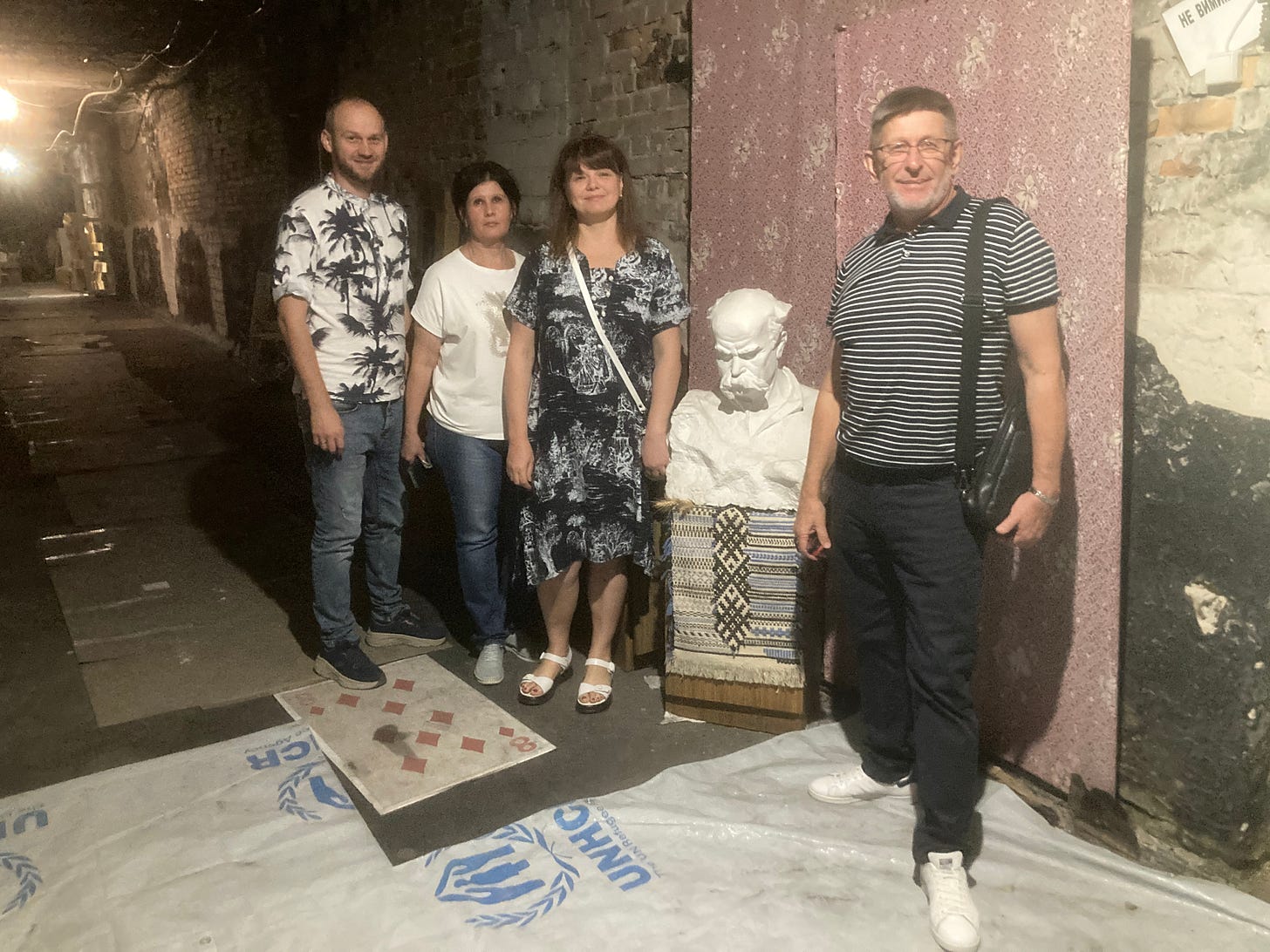
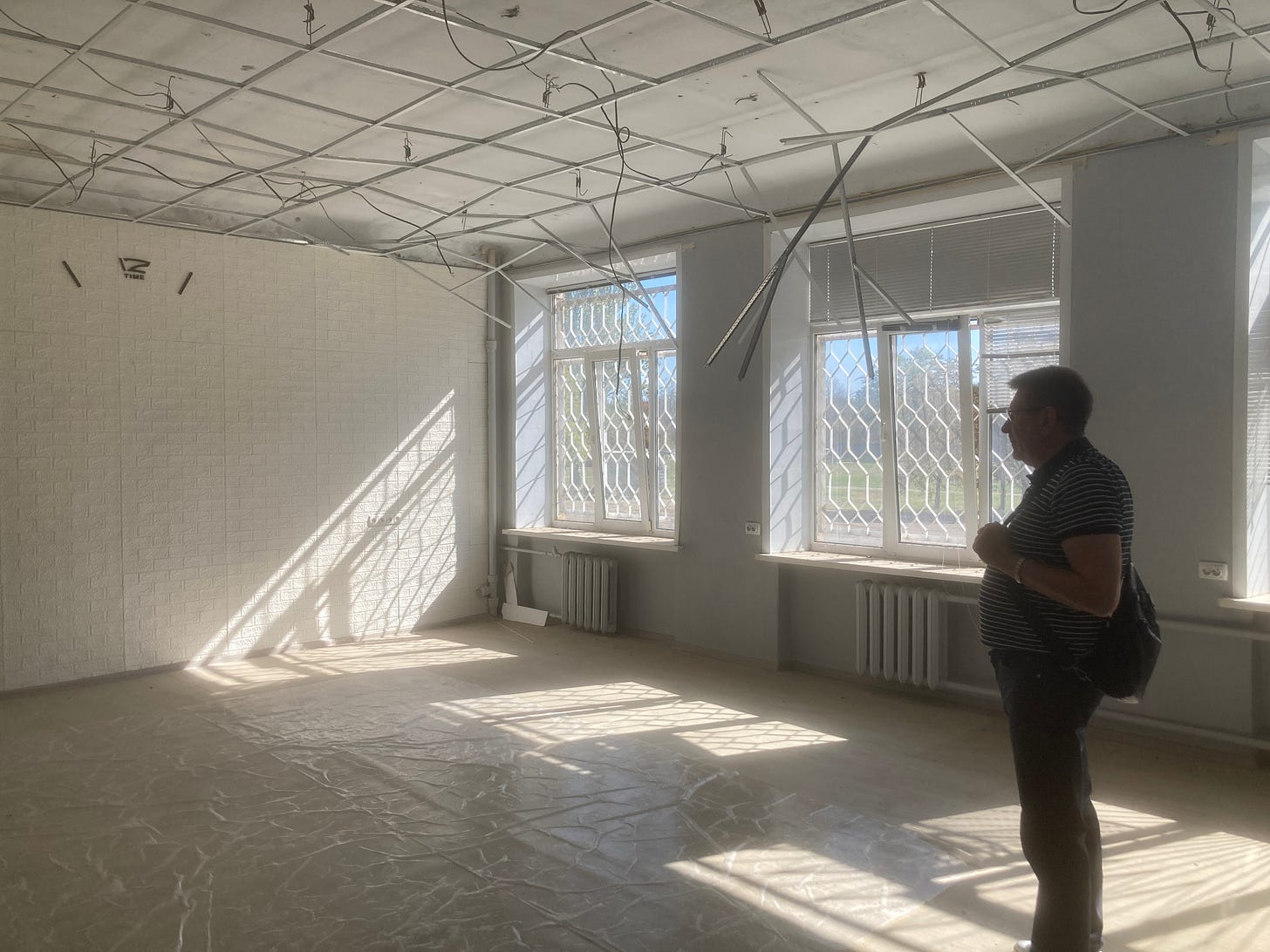
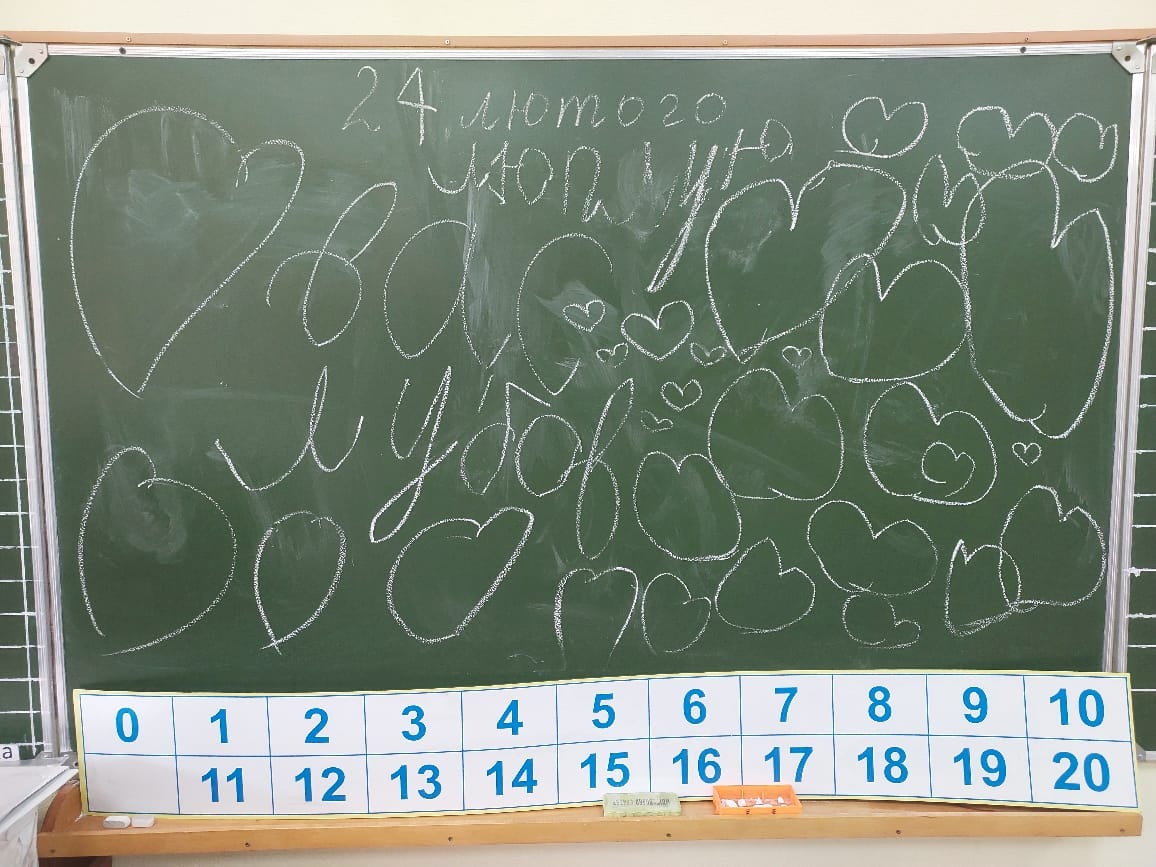
What a heart rendering story. Even under the brutal siege of Russian invaders, Ukrainians seek knowledge and normalcy. Meanwhile Russians bask in the ignorance of war criminal Putin a pathetic little man. Ukraine will survive and be a better people for having defeated the Russian hordes of ignorance.
I love these people and the way they, as you say, do things on a shoestring. It really looks like hardships are drawing out the best of human resources. Three cheers...